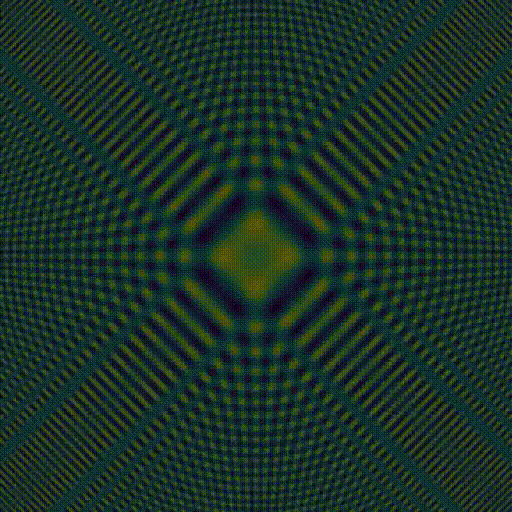Quantum Software For Photonic Quantum Computers
Photonic Quantum Computers are using photons as quantum information carriers and photon detectors to store quantum information. Our Software runs on photonic quantum computers and used in Physics, Technology, Industry and Finance and algorithms such as Quantum Fourier Transforms, Superpositions of Quantum States Algorithms, Quantum Entanglement and Schrodinger Equation AlgorithmsCurrent Software projects for Photonic Quantum Computers
Using photons as qubits makes Quantum Photonic Computere particularly suited for specific applications. We are currenly offering quantum photonic software for : faster training of neural networks, improving clustering and pattern recognition in high-dimensional datasets, building quantum internet infrastructures and quantum communicationsPhotonic Quantum Computers for Edge Detection in Images
We succesfully applied Quantum Photonic Software and improved classical results for image and video processing such as edge detection and object recognition/identificationPhotonic Quantum Computers for Quantum Key Distribution (QKD)
We make Quantum Photonic Software for QKD which guarantees unbreakable encryption based on the laws of Quantum Mechanics and Photonic Quantum ComputingPhotonic Quantum Computers for Drug Discovery
Our Drug Discovery Quantum Photonic Software can handle high-dimensional data and compute probabilities of molecular configurations faster than classical computers and with better accuracy, naturally modeling quantum effects in molecular interactions more precisely, therefore providing better predictions.Quantum AI
Quantum AI is a combination of quantum computing and artificial intelligence (AI) that uses quantum computers to improve machine learning algorithms and create more powerful AI modelsQuantum ML
The goal of Quantum ML and Pattern Recognition is to use unique properties of quantum mechanics—such as superposition, entanglement, and quantum interference—to enhance and accelerate ML algorithms and processesQuantum Image Processing (QIP)
QIP leverages quantum computing to process, manipulate, and analyze images for large-scale or high-dimensional image data and improves upon Classical Computer Vision for Image Classification and Recognition, Enhanced Image Representation, Image Compression, Visual Data Manipulation and PredictionQuantum Computer Vision
Quantum Computer Vision is the application of quantum computing principles to the field of computer vision, which involves enabling machine devices to process, analyze, and interpret visual data such as images or videos. Quantum Computer Vision addresses many computational challenges and enhances the performance of classical computer vision algorithms.Quantum NLP
Quantum NLP explores how quantum principles like superposition, entanglement, and quantum parallelism can be used to process, analyze, and understand human language more efficiently or effectively than classical methods.Quantum Security and Encryption
Cryptographic techniques and security measures that leverage the principles of quantum mechanics to enhance the security of data transmission, storage, and processing.Quantum Communications
Focuses on leveraging phenomena such as quantum entanglement and superposition to transmit information in ways that are either impossible or highly challenging for classical communication systems to achieveQuantum LLM
Integration of quantum computing with large language models, which are advanced machine learning models trained to process and generate human language. The concept leverages quantum computing principles to enhance the capabilities, efficiency, or scalability of language models.Quantum Digital Twins
Virtual replicas of physical systems or processes that are used to simulate, monitor, and optimize real-world scenarios. Quantum digital twins leverage quantum mechanics to enhance the modeling, simulation, and decision-making capabilities of digital twins, particularly in scenarios that involve complex systems and massive data sets.Quantum PDFs and other electronic Documents Digitization
Quantum computing brings breakthroughs in areas like data encryption, search optimization, pattern recognition, and secure storage for digitized content.Quantum Random Numbers
Ensure true randomness. Unlike traditional random number generators (RNGs), which rely on deterministic algorithms or pseudo-random processes, quantum random number generators (QRNGs) leverage the inherently unpredictable behavior of quantum systems to produce genuinely random numbersQuantum Data Generation
Exploits the unique properties of quantum mechanics—such as superposition, entanglement, and quantum randomness—to produce datasets that are either more efficient, accurate, or secure compared to classicalQuantum Simulations
Model and simulate physical, chemical, biological, or other complex systems that are difficult or impossible to simulate efficiently with classical computers.Quantum Forecasting
Quantum software and hardware have the potential to outperform classical systems in many areas of forecasting by handling high-dimensional data, finding patterns in large datasets, and solving optimization problems more efficientlyQuantum Expert Systems
Offer significant improvements in how expert systems are designed, trained, and operated, particularly in areas involving large datasets, complex rules, and high-dimensional information. These improvements come from the unique capabilities of quantum systems that can process vast amounts of informationQuantum Finance
Seeks to address challenges such as portfolio optimization, risk management, derivative pricing, and fraud detection, which often involve large datasets, high-dimensional models, and complex computationsQuantum Brain
Applying quantum computing principles to understand or emulate the functioning of the human brain processes, that are believed to be too complex or non-classical for traditional computational models to handleQuantum Decision Support Systems
By combining quantum computing with expert systems, quantum expert systems aim to leverage the power of quantum mechanics—such as superposition, entanglement, and quantum parallelism—to enhance decision-making, problem-solving, and knowledge representation tasksQuantum Generative Arts

The fusion of quantum computing and generative art leverages quantum mechanics' properties, such as superposition, entanglement tp create unique art